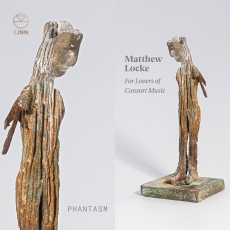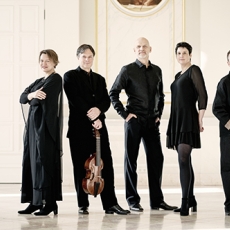Phantasm - Locke - Gramophone
This recording should come with a warning not to read the booklet notes until after listening to the CD. Look no further than the opening sentence, in which Phantasm’s founder and leader Laurence Dreyfus provocatively suggests that ‘there may be no good reason to like the consort music of Matthew Locke’. Donning his professorial mortar board, Dreyfus at once enlightens us on the idiosyncratic nature of the music while parodying it in his prose. A tour de force? I fear some will be dissuaded from listening to the disc, which would be a shame, because it is indisputably superb.
Locke’s music – suites and canons for four to six viols composed during the 1650s – is surprisingly tuneful and harmonically engaging. Phantasm’s performances are compelling, their immaculate ensemble always internally balanced to best effect, their nearmiraculous transparent textures brilliantly captured by the engineer. Dreyfus’s choices of tempo and application of rubato are both refreshing and nuanced. Elizabeth Kenny’s polished and beautifully judged theorbo accompaniments subtly enrich Locke’s delicately chromatically inflected textures.
Each suite begins with a ‘Fantazie’ (each of The Flat Consorts for my cousin Kemble sports two) that is constructed in a series of contrasting sections (some of which are fugal), not unlike a miniature sinfonia or theatrical overture, and is succeeded by characterful, danceable courantes, sarabands and jiggs (in The Flat Consorts) or ayres (in the Consorts of Four Parts). The two exquisitely constructed canons in six parts are a true delight for lovers of consort music. It is recordings of this calibre that will attract new listeners to the English consort repertoire.


